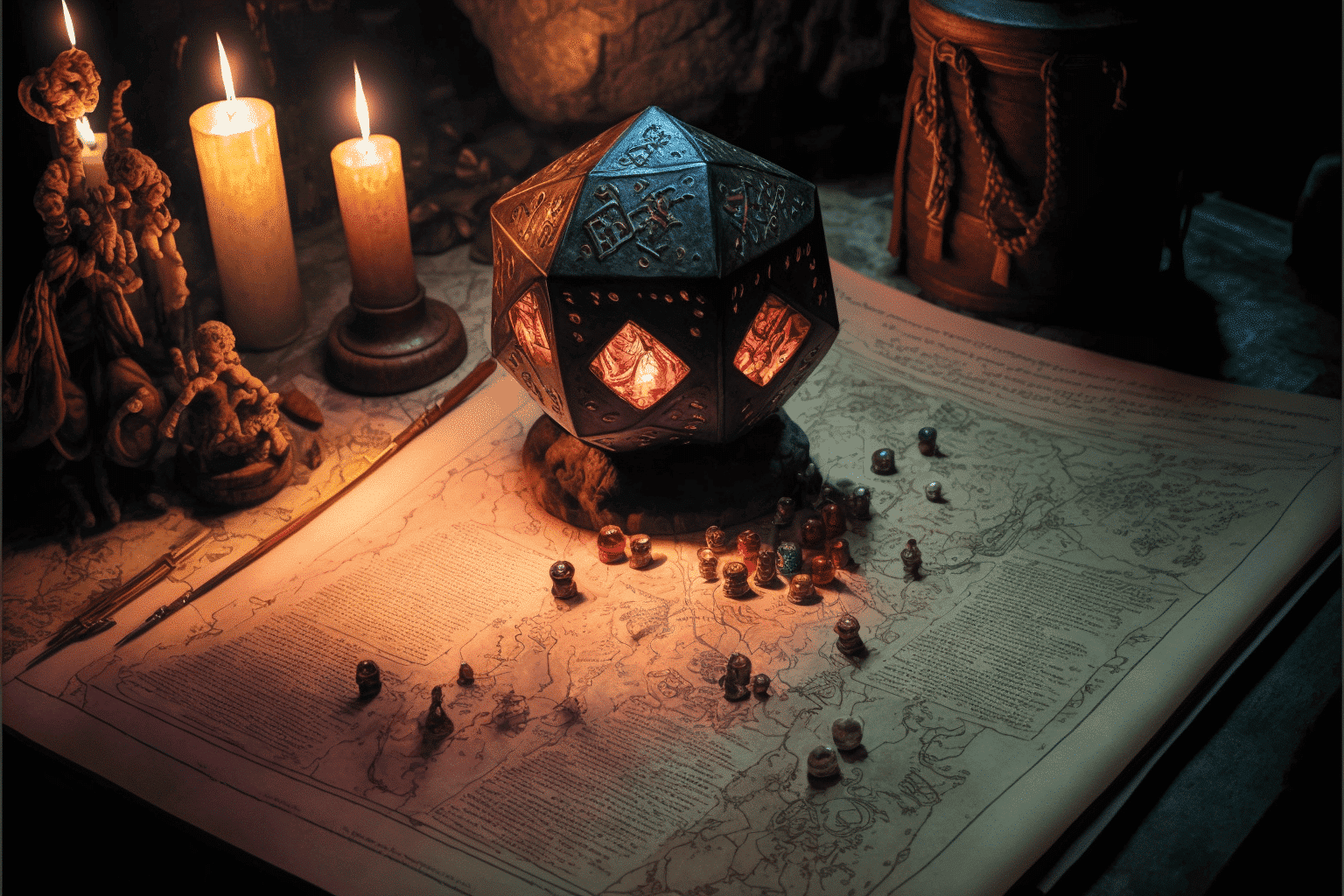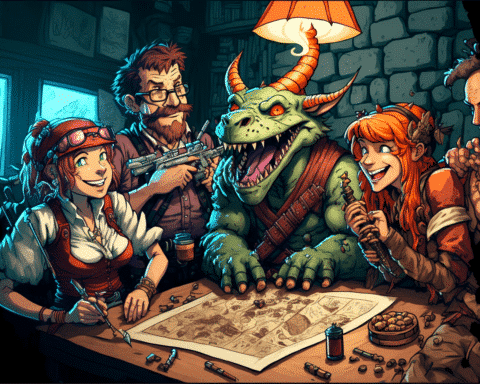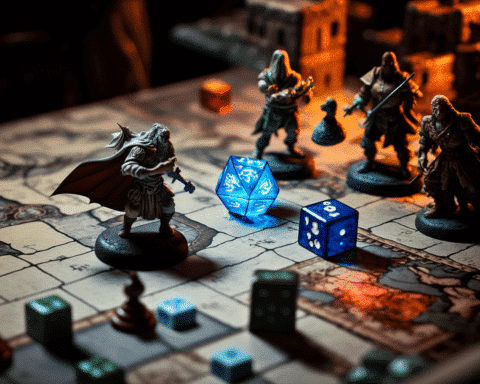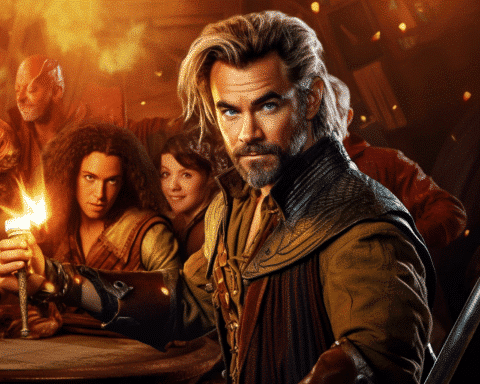According to recent reports, Wizards of the Coast, a subsidiary of Hasbro, is planning to revoke its Open Gaming License (OGL), which has enabled third-party publishers and fans to create content for Dungeons & Dragons using the game’s rules for over 20 years.
This change could significantly impact the tabletop industry, as the OGL has been a key factor in the success of many creators and publishers, including Paizo, the creator of Pathfinder.
According to reports, Wizards of the Coast is planning to introduce a new license, called OGL 1.1, which would make significant changes to the current D&D policy.
The new agreement would require creators to register any products they sell with Wizards and would also include a 20-25% royalty to be paid to Wizards by license users earning over $750,000 per year.
Additionally, Wizards would be granted a “non-exclusive, perpetual, irrevocable, worldwide, sub-licensable, royalty-free license” to use content created using OGL for any purpose.
This new agreement would also force all creators to adopt OGL 1.1, despite the current version’s language stating that this cannot be done.
Wizards of the Coast has issued a statement addressing rumours of changes to the Open Gaming License (OGL) for Dungeons & Dragons, stating that “The OGL is not going away.”
The statement emphasizes that fans will still be able to create and publish new D&D content and that the thousands of creators who use platforms like Kickstarter and DMsGuild are a vital part of the D&D community.
However, the leaked draft of OGL 1.1 appears to indicate a different intention, with changes that may potentially obstruct competitors like Green Ronin Games, who sell products that utilize OGL.
“If I choose to publish under the new OGL 1.1 agreement, it would allow Wizards of the Coast to republish all my writing at their discretion, as per the agreement’s terms. This is a concerning aspect of the new agreement and not fair treatment for creators.”
In the new OGL 1.1, Wizards of the Coast states that the Open Game License was always intended to allow the community to creatively expand D&D and not to subsidize major competitors, especially in the age of digital distribution through PDFs.
This statement comes as D&D alternatives such as Pathfinder have gained significant popularity in recent years, which has led to Wizards being more interested in limiting the OGL.
In light of the questions raised by the changes to the Open Gaming License (OGL) for Dungeons & Dragons, Kobold Press, a major publisher of content under OGL, has released a statement on their website announcing their plans to create a new “Core Fantasy tabletop ruleset,” code-named “Project Black Flag,” which will be available, open, and free of subscription fees for fans of the genre.
They also confirmed that they will release their current Kickstarter projects as planned, based on the OGL license.
This announcement follows confirmation from some OGL publishers, such as Whitehack, that they have removed their products from online stores in response to the proposed changes under OGL 1.1.
Whitehack stated on Reddit that they have decided to stop the distribution of their product for a while, as the situation has the potential to escalate quickly, and they want to evaluate their options at their own pace.
While Wizards of the Coast has not yet made any official statement, D&D Beyond recently tweeted that they are aware of the community’s questions regarding the OGL and will be sharing more information soon.
Based on the public responses to the tweet, there is a high level of interest and anticipation for further information.
The proposed changes to Wizards of the Coast’s Open Gaming License (OGL) come as parent company Hasbro is facing pressure to increase revenue.
Recently, CEO Cynthia Williams stated during a virtual event with investors that D&D is “really under-monetized” and expressed interest in creating recurring spending similar to that seen in digital games.
This statement was made shortly after Hasbro’s stock dipped due to criticism of their management of Magic: The Gathering.
The leaked document about the changes to the OGL for D&D gained credibility when Jon Ritter, the Director of Games at Kickstarter, tweeted that the company was contacted after Wizards of the Coast decided to make changes to the OGL.
He stated that they felt the best course of action was to advocate for creators, which they did, and they managed to negotiate a lower percentage of royalty payments for projects funded through the crowdsourcing platform.
Ritter also clarified that there were no hidden benefits or financial kickbacks for Kickstarter. When reached for comment by IGN, Wizards of the Coast declined to provide further comment and directed toward their statement on D&D Beyond.
With the details of the draft of OGL 1.1 now public, fans and creators alike are raising concerns.
Pat Mooney, the Lead Designer at Flagbearer Games, told IGN that “the most painful part of the new OGL is the clause that gives WotC the right to use any of my content, in perpetuity, royalty-free.”
He went on to express his concerns about how this could impact his planned Kickstarter campaign for a sourcebook on the American Revolution, stating that “more than half of my book will be “fluff,” or worldbuilding, history, and other narrative content that has nothing to do with rolling a die.
Yet if I publish under the OGL 1.1, by the letter of the agreement, WotC could republish all my writing at their discretion.
It’s not right.” Similarly, Nerd Immersion, a YouTuber and creator of D&D content using the OGL, said, “if this continues, I could see a rise in popularity of other non-D&D and non-OGL RPGs.”
He also speculated that “several of the creators who are frustrated by these changes end up designing a new, replacement RPG system,” similar to how Pathfinder came about following the introduction of the 4th edition and the Game System License.
Some publishers, like MCDM, who produce supplements for D&D, remain optimistic about the situation and have assured their fans via Twitter that the OGL 1.1 does not affect their products and that they will inform their community if any changes occur.
However, Tyler A. Thompson, an attorney representing publishers Sad Fishe Games and Prudence Holdings, which both rely on OGL, has written to Wizards stating that “creators are not going to be bullied” and if Wizards does not clarify the planned changes in OGL 1.1, his clients will consider legal actions, including joining with other publishers to pursue claims against Wizards for anticipatory breach and other claims.
It remains to be seen whether the leaked draft of OGL 1.1 will be implemented, as Wizards has indicated that they are open to reconsidering their decision.
The proposed changes to the Open Gaming License (OGL) for Dungeons & Dragons have caused concern among fans and creators alike.
Many are worried about the implications of the new agreement, particularly the clause that would allow Wizards of the Coast to use their content in perpetuity and royalty-free.
Some publishers have taken a wait-and-see approach, while others are considering legal action if the changes go through as proposed.
The community is eagerly awaiting more information from Wizards of the Coast, and it remains to be seen how the situation will ultimately unfold.
Update:
The proposed changes to the Open Gaming License (OGL) for Dungeons & Dragons have sparked concern among fans and creators, with some publishers taking action in response.
Kobold Press, one of the largest publishers of content under the OGL, announced plans to develop a new “Core Fantasy tabletop ruleset” that will be open, available, and subscription-free, code-named “Project Black Flag.”
They also confirmed that they will be releasing their current Kickstarter projects as planned, which utilize the OGL license.
This comes after some OGL publishers, such as Whitehack, confirmed that they have removed their products from online stores in light of the OGL 1.1 news.
Whitehack stated on Reddit that they have decided to stop the distribution of their product for a while as they evaluate their options.
Despite the growing concern and backlash, Wizards of the Coast still needs to make an official statement. D&D Beyond, however, recently tweeted that they are aware of the community’s questions regarding the OGL and will be sharing more information soon.
The community is eagerly awaiting more information from Wizards of the Coast.




